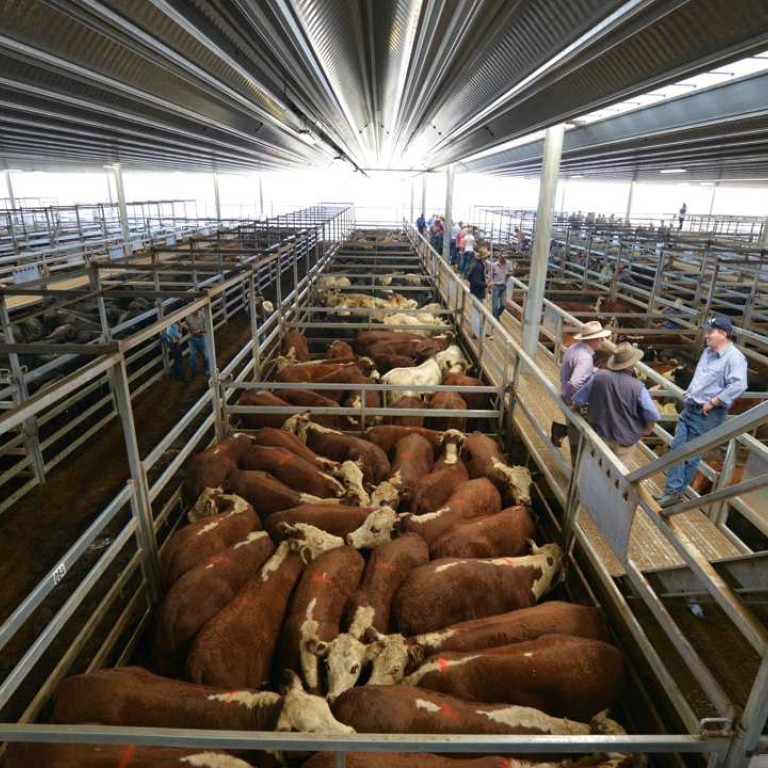
New | Transparency and engagement needed by Chinese firms to counter Aussie fears
A week ago a potential Chinese bid for a South Korea sized area of Australian farmland was temporarily blocked following government objections. A month earlier and a 99 year lease granted to a Chinese firm to operate the Port of Darwin sparked national security concerns.
Its not the welcome mat some in the investment community had hoped for but as Canberra weighs up the lure of jobs and investment against security concerns and the whiff of scandal that sometimes accompanies mainland money, some Australian analysts suggest Chinese firms should try and make life easier for themselves.
Lobbying politicians and talking directly to impacted communities should be the first step for any serious Chinese investor as the onus is on buyers to dispel concerns people have, analysts say.
“Money alone won’t talk,” said Andrew McConville of Daymark, an Australian research consultancy.
“Investors need to communicate with the community,” he added. “Investors from China are not well understood. There is an underlying concern of state owned investment and that some of these firms are backed by the government, and therefore concerns over where ultimate ownership of the assets lie.”
Its that relationship between Chinese firms and the Chinese state, or in some cases, the Chinese military that adds an opacity to any mainland sourced investment, and generates headlines and controversy foreign rivals rarely attract.
That’s help shape a narrative that Chinese firms need to counter where they can, said McConville, citing a recent Daymark survey that showed Australians were more concerned about foreign direct investment from China than from other countries, and had at the same time over estimated the total dollar impact of Chinese investment.
The actual numbers are far smaller than Daymark’s survey participants feared.
In 2014 foreign investment from China was A$64.5 billion, a 48 per cent annualised growth rate since 2009, yet still only 2 per cent out of a total A$2.78 trillion received in overseas investment, Australia Department of Foreign Affairs and Trade data shows.
By comparison the US accounted for 27 per cent of 2014 foreign direct investment into Australia, while the UK made up 17 per cent.
Initially much of that Chinese money was focused on the mining sector but over time Chinese companies and entrepreneurs have broadened their scope to include agricultural, property and media, among others.
That’s brought more scrutiny, some of it unfair, say members of the business community; “There’s no doubt that as a nation of 23 million people on the periphery of Asia, we simply can’t afford a ‘Fortress Australia’ mentality. We must be outward looking seeking to engage and integrate our economy with Asia if we are truly going to enjoy the benefits of the Asian Century,” said Alex Malley, chief executive of CPA Australia.
Last week the planned sale of vast cattle farming business Kidman & Co was blocked, just as competing China bidders prepared to pitch for the A$350 million estate, by Treasurer Scott Morrison on the grounds it “would be contrary to the national interest.”
The 101,411 sq km property included land located within a weapons testing range in South Australia. Morrison’s decision prompted an outcry from opposition parties who complained it sent the wrong message to foreign investors. It was later suggested the vendor carve out the affected zone from the final sale.
In Darwin, Chinese infrastructure firm Landbridge bought an 80 per cent stake in the port last month in a deal hailed by local politicians as the start of a new wave of two way trade between the region and China. Reports in the Australian media Landbridge firm and its chairman Ye Cheng have links to China’s military led prompted an outburst that Australia had compromised national security. Landbridge later told reporters that some material on its website had been “misconstrued” and that Ye had not been in the military.
Chinese firms need to understand they are a “special case” compared to investors, say from the US, and they have to “engage stakeholders” early on, McConville said. Being transparent won’t guarantee success in every instance but it might help distil some concerns.

